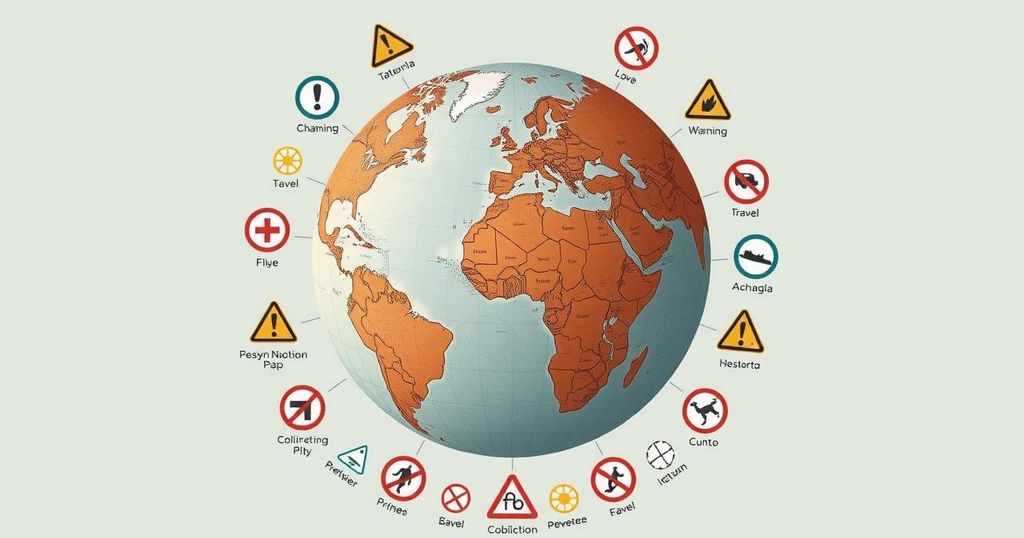The Trump administration plans new U.S. entry restrictions affecting Afghanistan, Pakistan, Iran, Libya, Somalia, Sudan, Syria, Yemen, Chad, North Korea, and Venezuela. An Executive Order mandates a review of security procedures, with advocacy groups warning of dire effects on refugees, particularly from Afghanistan. The final list is expected soon as civil rights organizations oppose the measures.
The Trump administration is reportedly poised to introduce new restrictions on U.S. entry from a number of countries, including Afghanistan, Pakistan, Iran, Libya, Somalia, Sudan, Syria, Yemen, Chad, North Korea, and Venezuela. This initiative follows an Executive Order issued on January 20, which instructed federal agencies to evaluate nations exhibiting inadequate security screening and vetting processes. The objective is to enhance entry protocols, with considerations for partial or complete suspensions of admissions from these nations. An announcement regarding the affected countries is anticipated soon.
During his first term, President Trump’s administration implemented various travel bans starting in 2017, targeting predominantly Muslim-majority countries. This initiative drew significant backlash, with detractors labeling it a “Muslim Ban.” Despite facing legal challenges, the U.S. Supreme Court upheld the third iteration of the ban in 2018, affirming it as a legitimate exercise of presidential authority concerning national security.
Although the final enumeration of countries subject to restrictions remains unconfirmed, Afghanistan and Pakistan are under consideration for possible inclusion. Advocacy entities, such as the International Refugee Admissions Project (IRAP), alerted that these restrictions could severely impact Afghan refugees—including Special Immigrant Visa (SIV) holders—who are escaping Taliban persecution.
Pakistan is also reportedly being evaluated amidst security concerns and perceived deficiencies in its vetting processes. Inclusion in any ban could significantly affect countless Pakistani citizens who seek to enter the U.S. through visas.
The proposed travel ban has incited immediate opposition from civil rights organizations, including the American Civil Liberties Union (ACLU), which decried the plan as unjust. Critics further maintain that the State Department and the Department of Homeland Security employ some of the strictest vetting systems globally, rendering additional restrictions superfluous.
Under the Executive Order’s mandate, the State Department and DHS have a 60-day timeframe to finalize their list of countries potentially facing travel limitations. With the deadline approaching, an official announcement is imminent.
In summary, the Trump administration is preparing to impose new entry restrictions for several countries, including those facing security concerns. This follows a long-standing framework of travel bans, which has garnered criticism for its perceived discriminatory impact. Advocacy groups are particularly concerned about the repercussions for Afghan refugees. As the deadline for finalizing the list of affected nations nears, the implications for thousands of individuals remain critical and pending official clarification.
Original Source: www.travelandtourworld.com






